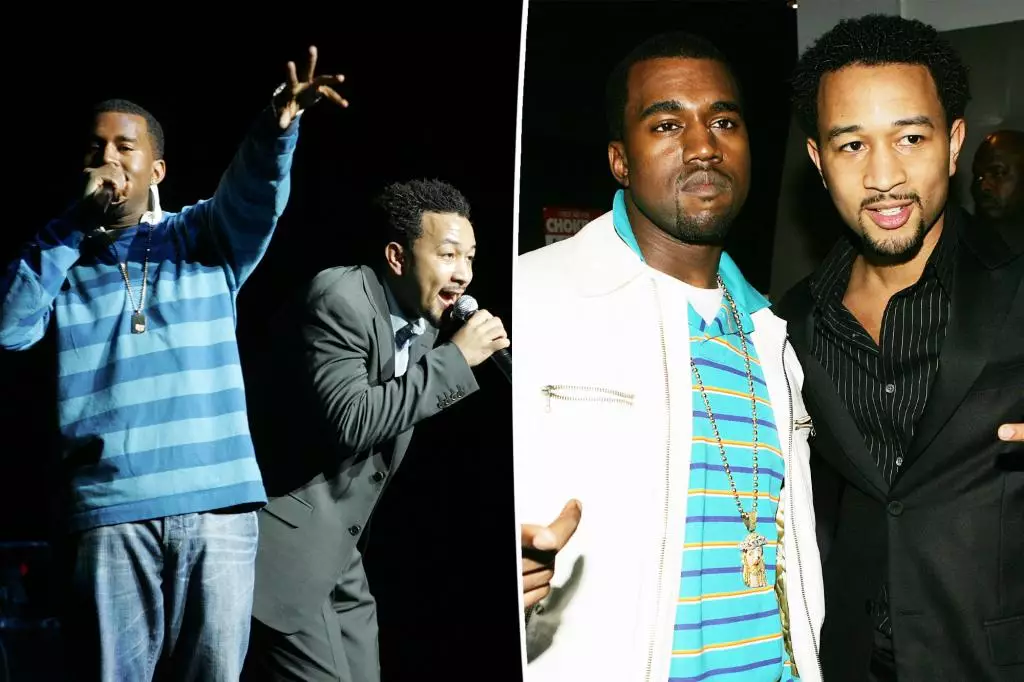In a heartfelt reflection, John Legend recently shared insights into his long-standing friendship with Kanye West. Their bond dates back to the mid-2000s when West was on the cusp of transforming music with his unique talents and spirited vision. Legend reminisced about the early days when Kanye was a canvas of ambition—full of optimism and creativity that was infectious not just to those closest to him but also to the entire music industry. They forged a partnership that was not merely professional but deeply personal; West played a pivotal role in introducing Legend to the industry, providing him with the exposure needed to catapult his own career.
Legend’s acknowledgment of West’s monumental breakthrough with albums like “The College Dropout” reflects a bittersweet nostalgia. He observed how Kanye’s initial triumphs brought opportunities not only for himself but also for his close allies, including Legend. This very synergy fostered an environment where creativity flourished. However, the stark contrast between those formative years and the current state of affairs is not merely distressing—it’s alarming.
The Fraying Threads of Friendship
The relationship between Legend and West has endured significant strain in recent years, particularly as West’s public persona began to shift dramatically. Legend expressed disappointment and concern over West’s controversial support for Donald Trump and his subsequent embrace of increasingly toxic rhetoric. What seems particularly poignant is Legend’s reflection on the struggles West faced after the passing of his mother in 2007. This pivotal moment, according to Legend, marked the beginning of a troubling descent—a seemingly slow unraveling that has accelerated into a public spectacle filled with alarming proclamations.
This evolution, from a passionate artist with radical ideas to someone entrenched in antisemitic statements and provocations, has bewildered many, including those who once stood by West. Rather than helping to uplift others, his recent behavior has taken a chilling turn, leading some to question the very essence of the man they once admired. Legend’s assertion that they are not qualified to psychoanalyze West reflects a sensitivity and awareness that many often overlook; he emphasizes that the changes in West’s demeanor are troubling yet complex.
A Case for Compassion amid Controversy
While it’s easy to be critical and condemn West for his recent actions, Legend’s approach urges us to examine the deeper issues at play. The complexity of mental health, loss, and the pressures of fame can create a tangled web in anyone’s life. One cannot ignore the societal responsibility to recognize when someone’s actions stem from profound pain rather than simple malice. It raises questions about the support systems surrounding artists in high-stress environments.
As West continues to draw attention through reckless statements—one notably involving derogatory admiration for figures like Adolf Hitler—his past friendship with individuals like Legend serves as a stark reminder of lost potential. The gulf between those moments of genuine camaraderie and today’s troubling outbursts underscores not only a personal tragedy but a collective societal failure to intervene or provide vital support.
In this context, there lies an opportunity for reflection. What does it mean when those we once admired descend into chaos? Are we merely spectators to this unraveling, or can we advocate for a holistic approach to mental health within the creative environment? Legend’s sentiments reflect a longing for the artist he once knew but also serve as a wake-up call to acknowledge the pressing need for understanding and compassion amid the turbulence.

Leave a Reply